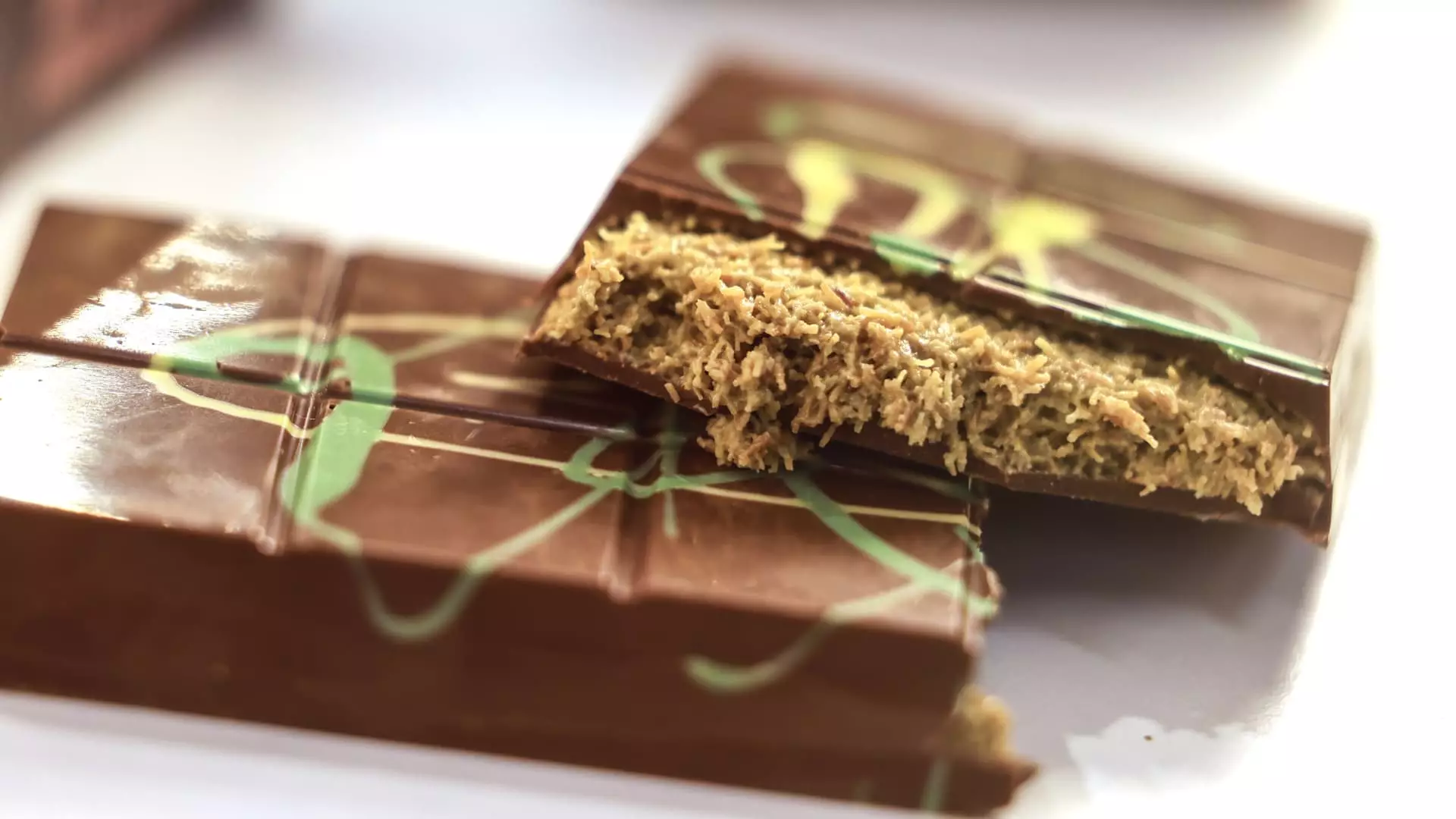The chocolate world is no stranger to trends, yet the insatiable rise of “Dubai chocolate” seems to be rewriting the rules of confectionery engagement. What began as a humble pregnancy craving in 2021 for Fix Dessert Chocolatier’s CEO, Sarah Hamouda, has exploded into a global phenomenon. The pioneering bar, synthesized from a rich blend of pistachio cream, kadayif, and tahini, has captivated the taste buds of many. Rather than merely taking from traditional recipes, Hamouda’s vision transformed the chocolate bar into a dessert experience encapsulated in an inviting wrapper.
It’s an innovative concept that isn’t just about taste; it embodies a cultural fusion that reflects modern appetites for luxury and novelty. The question arises: how does a simple chocolate bar attain such an elevated status? One might argue it’s a masterclass in marketing and desire. After all, Hamouda’s insight into consumer cravings led to a rapid order increase from nearly zero to numerous daily requests, indicating that people are not merely purchasing chocolate; they are, in fact, investing in an experience.
The Market’s Response: Copycats and Collaborations
As the Dubai chocolate phenomenon gained momentum, it inevitably drew the attention of major companies looking to ride the wave. Shake Shack and Crumbl are just a couple of examples of brands eager to capitalize on the hype through limited-edition offerings that, let’s face it, dilute the uniqueness of Hamouda’s original conception. Instead of fostering a conversation around innovation, we find ourselves in an endless cycle of imitation that teeters dangerously close to the commodification of culinary creativity.
The situation worsens when we consider the lack of protective measures for the Dubai chocolate name. With the United Arab Emirates not being a part of any international trademark treaty, it raises significant concerns about intellectual property rights in global markets. The result? A chaotic environment where authenticity battles with imitation on every shelf, creating a minefield for consumers trying to discern quality from copy. While brands like Lindt have stepped in to churn out their versions, is it ethical to profit from someone else’s creative endeavor? Authenticity begins to feel like a luxury few can afford in a cutthroat market.
High Demand and Consumer Power
Meanwhile, the insatiability of consumer desire has further distorted traditional mechanisms of supply and demand. As highlighted by the success of Nuts Factory in New York, a once-small business was suddenly inundated with orders for its version of the Dubai bar. This explosion isn’t merely about chocolate; it’s a testament to the power of social media, where trends can ignite unexpectedly and companies must scramble to keep up with viral demand. Running out of stock is no longer just a business pitfall; it’s a badge of honor that signifies market relevance.
It’s intriguing to note that Nuts Factory went from producing a ‘couple hundred’ bars per day to a staggering ‘few thousand’—a reflection of how quickly tastes can evolve and shift. Companies striving to stay relevant must innovate or risk obsolescence. It’s not enough to add the term “Dubai chocolate” to a product label; originality and quality must be prioritized.
The Global Expansion: Fear of Dilution
As Dubai chocolate spreads its wings, even lower-cost alternatives have entered the fray, such as Trader Joe’s recent offerings. At a mere $3.99 per bar, this raises the question of whether affordability compromises authenticity. While accessible chocolates are beneficial for consumer choice, they risk drowning out unique products in an ocean of bland imitations. The market should be wary: while trends may offer bursts of excitement, they can quickly devolve into indistinguishable sameness.
Interestingly, data indicates that chocolate-pistachio pairings are on the rise, indicating that the flavor profile established by Dubai chocolate may have lasting impacts on menus worldwide. The success stories emerging from this trend beg for deeper scrutiny into why some experiences resonate while others fade into obscurity.
This cascade of influences reminds us that in today’s consumer-driven society, originality must shine bright amid the shadow of duplicity. The chocolate landscape is forever altered with the Dubai chocolate craze, but its evolution hinges on the balance between creativity and commercialization.


Leave a Reply